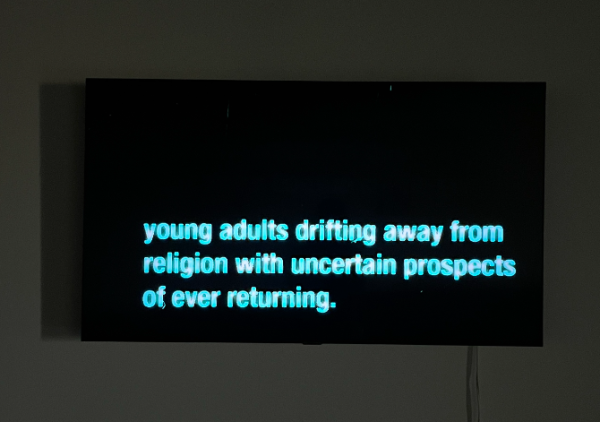Depression or Infection, what is going around campus?
Fatigue and upset woman touching nose bridge feeling eye strain or headache, trying to relieve pain.
We are in the midst of flu season, and people are dropping like flies in our classes. However, is this because of an infection, or is it a more underlying issue, such as depression?
“So with a chronically activated stress response, your body will start to lose its immune response, your body will start to lose what they call, serotonergic foundation,” said Dayna Schertler, LCSW, Director of Student Counseling Services. “Your serotonin levels change, So it just messes up the whole thing.”
Depression and the common cold have very similar side effects: fatigue, malaise, mental fog, problems thinking, loss of appetite, and sleep changes. The difference between the two is that with depression, you won’t have a stuffy nose, and it will be longer-lasting. Some people may be expressing depression-like symptoms and have an infection during this time.
“[Students] have to have symptoms for more than a two-week period,” Schertler said. “I hand [photo to the left] to students, and I say, ‘Look, this is not diagnostic. This is just your symptom level today.”
The most significant difference between the illnesses is how long the symptoms last. Suppose there is a high score on the checklist provided, and the symptoms have lasted more than a month. In that case, reaching out to Student Medical Services is recommended.
“There’s depression that stems from environmental factors, but we also know it’s [from a] stressful situation,” Schertler said. “It can be advanced, but generally, for people, that’s chronic stressors or genetics. Then if you have that genetic predisposition for depression, and then you have chronic stressors, you know, it’s like a double whammy.”
One of the most significant factors for new students is environmental change. In addition to not being at home, several West Texas A&M University students are not from the Texas Panhandle, a semi-arid climate.
“[Student medical] talked to [a student] about a humidifier and perhaps purchasing one,” Schertler said. “Sleep is probably one of the biggest things with mental health, and if the climate affects your ability to sleep well, then definitely [get a humidifier].”
However, a humidifier may only partially fix your mental health and body. Student medical advises a couple of solutions to help improve your mental health status.
“[Students] are moving from a place of pretty structured things for several years, and then they’re coming here, sometimes from Houston, or some far off land,” Schertler said. “Even though it’s not that big a deal to do your laundry and forage for food, but [students] haven’t maybe had to do it as much. So attending to those basic things like sleep and a solid couple meals a day would be good.”
Getting a regular schedule regarding eating, sleeping, drinking water and taking moments will go a long way to improve your situation.
“It’s just that simple; you need to make some remotely reasonable schedule,” Schertler said. “I don’t care what, and I say this a lot. I don’t care if it’s 1 to 9 a.m., but if you could try to have a schedule where this is when I need to go to bed and try to get up at the same time.”
To know what is affecting the body during this time needs an evaluation that the Student Medical Services would need to take care of. If symptoms align with the common cold for more than two weeks, you should reach out to Student Medical Services.
The center, located in the Activity Center, is open 8 a.m. to 5 p.m. Monday through Friday when school is in session and is closed during intercession, weekends, and WTAMU holidays.










